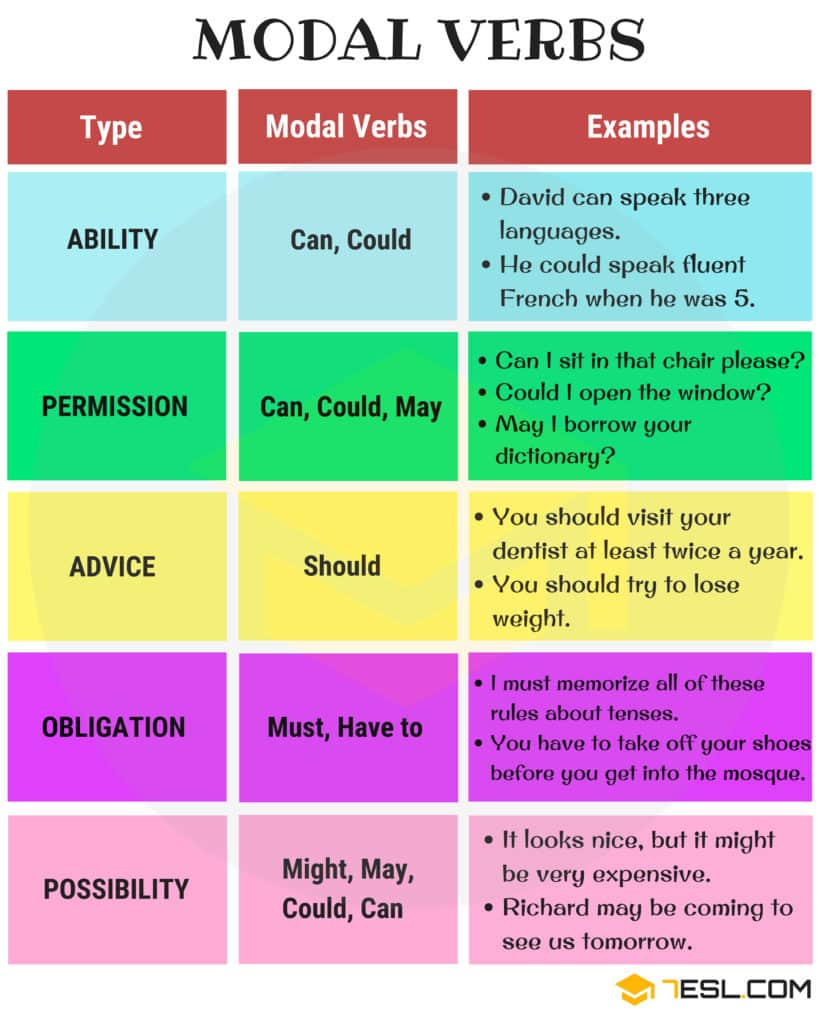Modal verbs are a type of auxiliary verb that express necessity, possibility, ability, permission, or obligation. They are used with the base form of the main verb to indicate the speaker’s attitude towards the action. Here are some common modal verbs and their examples:
Modal verbs can also be used to express different degrees of certainty or probability. For example:
- She might be coming to the party tonight.
- He should be finished with his work by now.
- They could be on vacation in Hawaii.
Modal verbs can also be used to give advice or make suggestions:
- You should take a break and relax for a bit.
- We could try a different approach to solve this problem.
- She ought to see a doctor about that persistent cough.
It’s important to remember that modal verbs do not change form based on the subject of the sentence. They always remain the same regardless of the subject. Modal verbs are versatile and can be used in a variety of ways to convey different meanings and attitudes towards actions.
So, the next time you’re writing or speaking in English, try incorporating some modal verbs to add nuance and specificity to your communication. Whether you’re expressing possibility, obligation, or advice, modal verbs are a useful tool to have in your linguistic toolbox.
